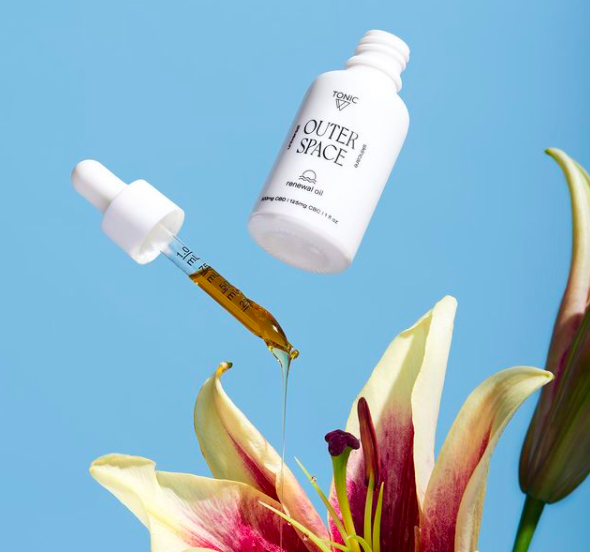Today’s interview is with Brittany Carbone, founder of TONIC CBD. She’s a perfect example of someone who struggled to find the product she wanted for her own health needs, so she set out to turn what she envisioned into a reality. Fast-forward four years and not only is her facility one of the first privately licensed hemp farms in New York state, but she also operates a fully closed-loop system, meaning her facility controls every part of the process from farming to extraction (putting your average CBD company to shame). Read our interview below to find out how she turned a company that started in her parents’ kitchen into a multi-million dollar operation with a monthly initiative that gives back to the community.
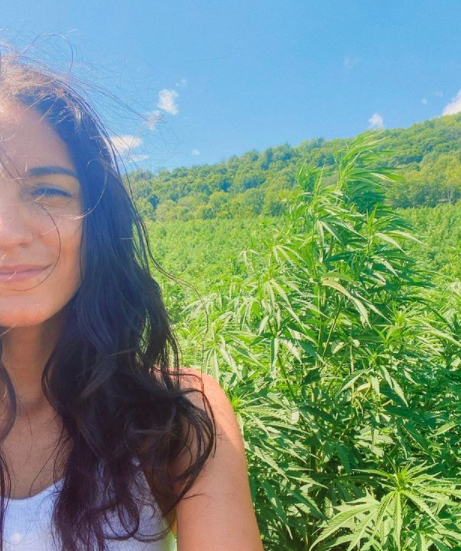
(This post contains affiliate links)
Tell me a bit about TONIC CBD and the products you offer.
TONIC is a farm-to-bottle, hemp-based wellness brand offering innovative and effective plant-based solutions to help you restore and optimize your essential mind-body balance. Each product is uniquely formulated to provide targeted support where you need it most. While we’ve been focused on caring for your inner space since 2017, we launched into a new stratosphere of wellness with our new line, Outer Space: Universal Skincare. No matter the product, we are always guided by the same principles of quality, integrity, and sustainability; We are rooted in our passion for the plant, the people who consume it and the earth that provides it.
What inspired you to start a business in the cannabis and CBD industry, in particular?
I created TONIC out of necessity. I was working as a personal trainer, suffering from depression/anxiety and seeking a natural solution to help me manage my mental health. Cannabis was always my way of coping, but it wasn’t exactly workday-friendly, especially working the crazy hours and maintaining the alertness and energy required for personal trainers. So when I learned about CBD in late 2016, I was skeptical but intrigued. I went to a local head shop to purchase it because that was really the only place to get it at the time and I started to incorporate it into my routine. I was honestly surprised by how well it helped me manage my anxiety. I had always taken it for granted that cannabis helped me because it just worked; I didn’t need to know anything else. But this “fake weed”, as I first viewed it, actually worked. And it didn’t get me high. So I dove deep into the research of CBD and the endocannabinoid system.
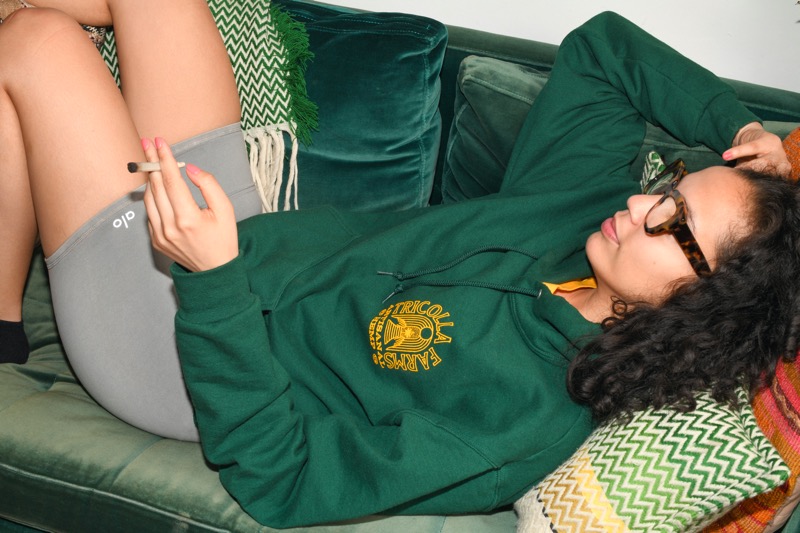
While there was not nearly as much info out there as there is now, I was able to see something very clearly: CBD is an adaptogen, just like the more traditional adaptogens like ashwagandha which was already a staple in my routine and something I recommended to clients. They share the common goal of restoring and maintaining homeostasis; they strengthen your inner forces against the influence of outer forces in order to maintain a stable internal environment despite a changing external environment; they both reduce anxiety and balance energy levels while boosting mood and improving mental clarity. But, they take different pathways to get there, essentially covering more ground and creating an adaptogenic powerhouse. So, I decided to make a custom blend of CBD and ashwagandha to test my theory of them doubling down on each other’s effect. The results were life-changing. I started to share it with my clients and the results were replicated. I knew that I had to share this with the world.
From there, I spent nearly all of 2017 in R&D, developing these blends and testing them on myself, my family, friends and clients, and then going back to the drawing board and improving the formulas. I officially launched TONIC in December of 2017, at that same time we became one of the first privately licensed hemp farmers in the state of NY – a venture my husband, my parents, and I got into as a result of my refusal to accept anything but the best when it came to the quality of our hemp. In order to achieve the level of quality, sustainability and intention I required for TONIC’s CBD I knew I’d have to do it myself. Since then, the company I started in my parent’s kitchen has generated over $3m in revenue, we’ve donated nearly $60k to nonprofit organizations through our Purpose Program, we grew our team to 6 women, our farm has gained its organic certification, and in March 2020 we opened our extraction & product development facility, Bardo Labs, closing the loop and officially allowing us to control the quality and intention going into every single stage of our process.
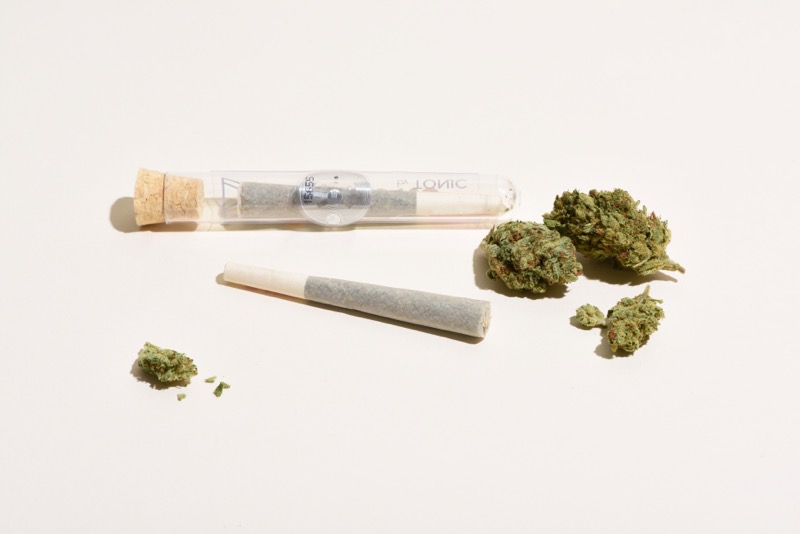
It looks like you have a close relationship with your hemp and extraction partners, Tricolla Farms and Bardo Labs. It was refreshing to see this in an industry where more and more CBD companies can’t even tell you where their hemp comes from because they’re so distanced from the process. What was it like searching for the right partners to help bring your vision to life?
I was tired of searching so I built the partners myself. My mission with Tricolla Farms and Bardo Labs has always been to not only ensure the highest level of quality, integrity and sustainability in TONIC products, but to be able to offer those same assurances to other like minded brands who share our ethos and seek leverage those same value propositions for their products. I experienced how difficult it was to build a business alone, to navigate this wild and crazy industry as a small business (especially as a woman owned small business), to find partners that understood the importance of intention through every stage of the process and offered full transparency at every turn.
I made it my mission to make sure others don’t experience those same roadblocks on their journey to ownership in this space. We offer additional support and resources to minority-owned brands to ensure that we are doing what we can to increase their ownership in the hemp/cannabis industry. A big part of TONIC’s mission, as well as Tricolla Farms and Bardo Labs’ mission, is social justice. We are proud of the work we do to support, educate, and empower communities that have historically less access to ownership opportunities especially in the cannabis space. Controlling our entire supply chain also allows us to ensure that we are living up to our promises when it comes to sustainability and environmental responsibility.
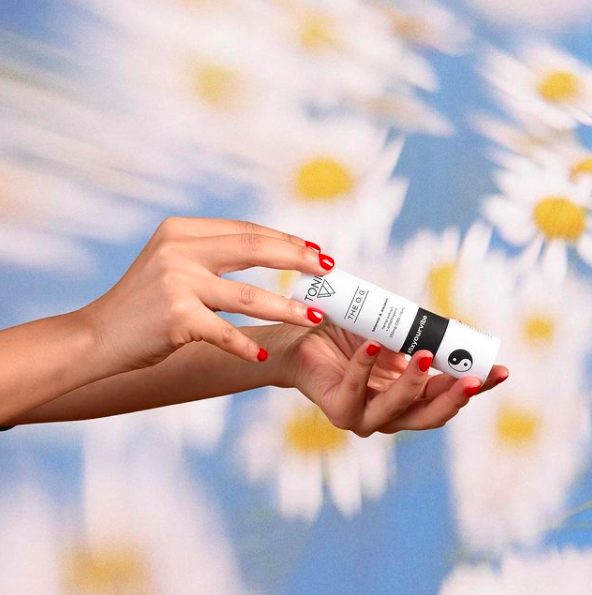
Your monthly giving initiative donates a portion of sales to a different organization each month. What do you look for when choosing an organization for this initiative?
We look for organizations that directly impact the community through social advocacy, justice reform, access to mental/physical wellness resources. When it comes to social justice organizations, we make sure that they are run by Black board members and that the organization has a strong rating on platforms like charity navigator and have a proven track record of affecting change and creating positive impact through their initiatives.
Is it safe to say that the stress of the pandemic has introduced more people to your products?
Yes, specifically through our Medihelp initiative. In April, when COVID overtook our hometowns here in NY, we refused to sit back while so many suffered. So, we took action and launched Medihelp, providing free CBD to frontline workers dealing with unimaginable stress. We wanted to make sure that they were not just protected physically, but cared for mentally and emotionally. Over the course of 2 months we provided 2500+ bottles of TONIC across 200 hospitals in the tristate area and beyond. Many of the recipients were first-time TONIC users but have reordered consistently since then and TONIC has become a staple in their self-care routine.
What would you most like to see change about the cannabis and CBD industry?
I want to avoid the seemingly inevitable corporate takeover of cannabis, but in terms of how things stand now, we are in desperate need of change in the areas of regulation and education. The lack of consistent, top down regulation makes it incredibly difficult to navigate the industry as a business as well as a consumer. There needs to be trust in these products if we are going to continue to break through the stigma that has surrounded cannabis for so long. Consumers need to know that they are getting high quality products and not have to worry about if there is even any CBD in the bottle they are ordering from a random website. Educating consumers and regulators properly is key to ending that stigma as well and really advancing the conversation around cannabis and cannabinoid based wellness therapies. Doctors need to learn about the endocannabinoid system. Pharmacists need to be able to reference hard data and clinical research to determine drug interactions. Research needs to be done to better understand dosing recommendations. The education and regulation go hand in hand because research has been restricted by cannabis’s designation as a schedule 1 narcotic for so long.
What advice would you give to other women who are interested in working in the cannabis industry but don’t know where to start or if it’s right for them?
Focus on what you are good at, or what you are most passionate about. You don’t have to be plant-touching to be “in the cannabis industry”, meaning that if you are a graphic designer or a lawyer or a marketing specialist or an accountant, keep doing that but pivot your approach to target and support the cannabis industry. Being in a plant-touching business or starting your own brand might seem like the most glamorous option, but it is really, really hard. Cultivation is a skill that requires a lot of experience and knowledge to execute at a high level. Same goes for extraction and manufacturing. To start a lab you not only need a huge amount of capital, but a deep understanding of cGMP regulations, chemistry, safety standards, and testing protocols. As a brand, and in any other part of the industry, you need to be ready for regulations to change at any time, for the rug to be pulled out from under you, for roadblocks, restrictions and obstacles at every turn. I don’t mean this to scare people off, but I do mean to say that this industry is not for the faint of heart. It brings more challenges than almost any other industry because of the intense – yet inconsistent and ever-changing – regulatory environment, so that is why the first question you should always ask yourself is “what am I most passionate about?” and then “what am I really good at?”. Those answers are where you start.
If you just want to get your foot in the door, getting a job as a trimmer or a budtender are the most common entry-level positions to start to learn the inner workings of a cannabis operation. These kinds of entry-level positions are great for younger folks to get their foot in the door willing to accept a modest hourly rate for the sake of experience. If you are serious about getting into the industry take those modest positions if you are able to because a lot of the time there is room for upward mobility within the operation. Budtenders and trimmers are some of the highest turnover positions because of the fact people really just use it as a stepping stone, but an effective stepping stone for sure.
In my opinion, entrepreneurship is one of the most liberating and fulfilling things you can do. I’m curious to hear your thoughts on entrepreneurship and how you’ve grown since starting your company in 2017.
Absolutely agree that it is the most liberating and fulfilling thing, but I’ll also add it is one of the most difficult things you can do, especially in the cannabis industry. Over the past 4 years I have been pushed to my limits over and over and over again, but the cool thing about that is that each time I realized that wasn’t actually my limit – that I can take more than I thought I could and keep going. The growth edge that entrepreneurship provides is unparalleled. It tests you every single day and really makes you understand the saying ‘what doesn’t kill you makes you stronger’. It’s hard not getting a paycheck. The uncertainty is difficult and the work is nonstop, but I wouldn’t have it any other way.
I think it’s also important to note that being a CEO and being an entrepreneur can require 2 very different skill sets and the 2 can get conflated a lot. It is important to understand the difference between a small business and a corporation (even if it’s a small corporation) because this is something you should think about when you think about how you’re going to scale your business. Answering to investors and a board and having to deal with all of the bureaucracy and paperwork is different than building an idea from scratch and hustling to make it work. I will admit that I didn’t take that into consideration when starting TONIC and it can be really difficult to reconcile what fulfills you with what needs to be done to keep a business going.
What does an average workday look like for you?
I start my day answering emails, then I check in on the status of projects for our Bardo clients and make sure everybody has their marching orders for what needs to done in the lab that day. Then, I try to get a couple hours of administrative work done before 11. I’ll usually have at least 3 phone calls per day with clients or agencies we work with. I sit with Haylli, our Chief Growth Officer, and handle any outstanding sales and marketing points that need to be addressed. There is usually somebody trying to come into my office and ask me something at least 2x per hour, so sometimes if I need to really focus and get my work done I shut my door and turn up some music and that’s when they know to stay away. There’s also at least 5 random/unexpected things that pop up throughout the day and spice things up. This time of year, my husband Erik and I will leave the office on the earlier side – around 6pm – to head over to the farm and get some work done in the fields before the sun goes down.
Any future plans for TONIC that you’d like to share?
We are going to be launching a new CBG dark chocolate bar with our partner Flor De Maria in the coming months which I am super excited about. We are also working on some new products that put a greater focus on minor cannabinoids like CBN and CBG!
Try TONIC CBD out for yourself by ordering from their website, TonicVibes.Com. Follow them on Instagram to keep up with the latest products.
